Smeared with blood and deer hair, the rubber gloves had been tossed by the roadside. Next to them lay a chunk of guts. The trash couldn’t be missed by anyone who parked at the hiking trail access the hunters had used.
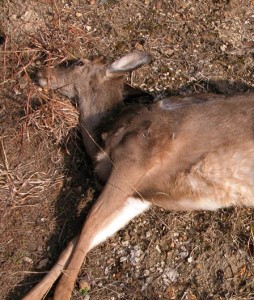
By then I’d stopped being surprised.
In only my second year as a hunter, I’d already seen enough of this—garbage left at kill sites, deer parts dumped alongside the road, and more. No, I wasn’t surprised. I was simply angered.
And struck by the timing. This was the morning after Vermont’s Youth Weekend: the two days set aside every November for the much-vaunted purpose of getting young deer hunters out in the woods, each accompanied by an unarmed adult mentor.
Littering was, I knew, among the lesser evils. But for me, in that moment, it was symbolic, standing in for the stories I’d heard from other hunters and hunter-education instructors: The animals killed and left to rot. The Hail Mary shots taken at deer running through thick cover. The intentional gut-shooting of deer on posted private property, the aim being to have them run a long way onto un-posted land from which they could be retrieved.
Here, looking down at gloves and guts, I was seeing not just disrespectful, slobbish hunting. I was seeing the passing-along of such hunting to another generation.
When we champion the survival of hunting traditions, let’s be specific.
© 2010 Tovar Cerulli

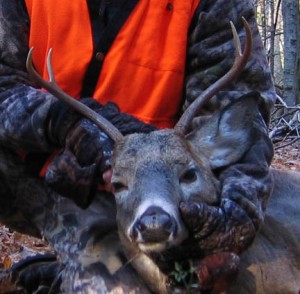 experiences were any measure, it would last a day or two, ebbing slowly.
experiences were any measure, it would last a day or two, ebbing slowly.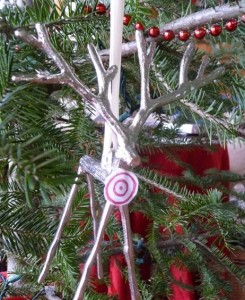 tissue paper, I saw the silvery gleam of spreading antlers. Uh oh. I drew out a shiny reindeer, an ornament for the tree.
tissue paper, I saw the silvery gleam of spreading antlers. Uh oh. I drew out a shiny reindeer, an ornament for the tree.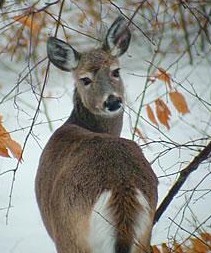
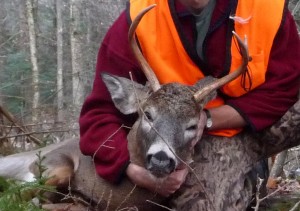 “I don’t mind,” he said and nodded toward his wife, to whom he was about to pass the serving bowl. She did mind.
“I don’t mind,” he said and nodded toward his wife, to whom he was about to pass the serving bowl. She did mind.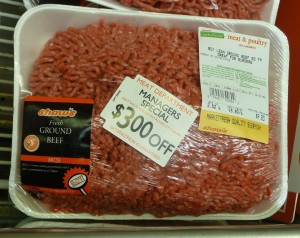 But here’s the thing. I know other people—some of them near-vegetarians—who won’t eat any meat except wild game. Or who will only eat meat—wild or domestic—if they know how the animal lived and died.
But here’s the thing. I know other people—some of them near-vegetarians—who won’t eat any meat except wild game. Or who will only eat meat—wild or domestic—if they know how the animal lived and died.